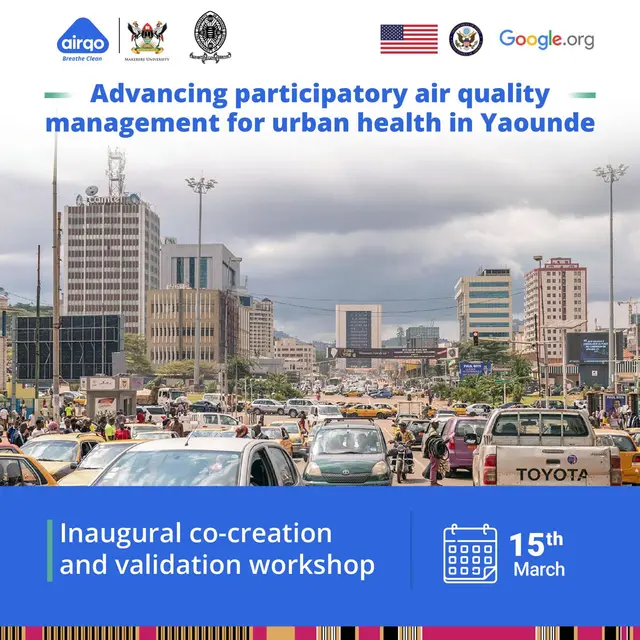

Motivation
Urban air pollution is one of the most important contemporary health threats globally and is responsible for over seven million premature deaths annually. Populations in Africa are disproportionately affected by air pollution challenges, accounting for over 10% of global mortality. However, effective management programmes have not been established in many African cities, largely because of limited access to timely and accurate air quality data from ground monitoring. The associated cost burdens of conventional air quality monitoring make it prohibitive for low-resourced cities to design and implement tailored interventions.
Advancing participatory air quality management is important for urban health. Engaging the local community in monitoring and managing air quality fosters a sense of ownership and empowerment. Involving residents in the decision-making process creates a more inclusive and responsive approach to addressing their specific concerns. This participatory model enables citizens to contribute firsthand observations, traditional knowledge, and contextual insights that may not be captured through conventional monitoring methods. Promoting community involvement not only enhances the accuracy and relevance of air quality data but also strengthens the resilience of urban populations to the health impacts of pollution.
This workshop will bring together the Yaounde air quality community of practice and will encourage collaborative efforts between local communities, government agencies, and other stakeholders to implement effective air quality policies and interventions.
The workshop aims to achieve the following objectives:
Expected outcomes
Setting the scene – Dr Assah
Session 1: Learning from the past
Presentation of the Clean-Air for African Cities Network Project – Mr Okure
Consolidate the stakeholder landscape in Yaounde – Dr Assah
Overlapping/synergistic activities on air quality/urban health in Yaounde
Session 2: The CLEAN-Air Project: Understanding/co-creating the present and the future –
Stakeholder onboarding and co-design of the implementation strategy for the CLEAN-Air for Yaoundé project
Demonstration of public access and use of AirQo app and web platform – Mr Elouna
Group photo and bio-break – Mr Ngwa
State of air quality in Yaoundé: preliminary analysis of the initial data – Mr Feuyit
Session 3: Shaping the future – Dr Assah / Mr Okure
Collaboration Avenues, Opportunities and Announcements
Closing remarks